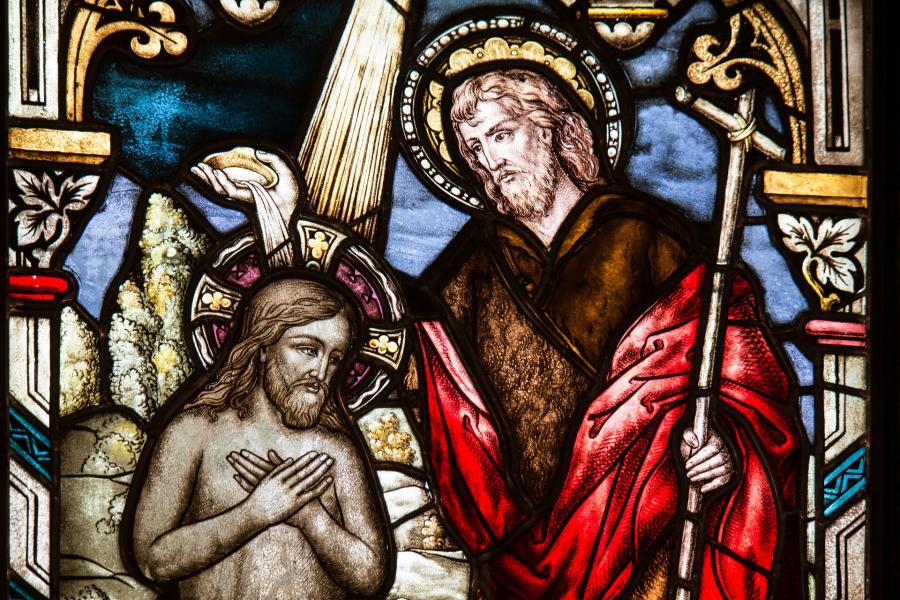The Only Comfort in Life and Death
Image

This is the beginning of a series of brief devotional articles on The Orthodox Catechism (“OC”), a Particular Baptist document written by Baptist pastor Hercules Collins in 1680. It’s basically the Heidelberg Catechism (first ed. 1563) with Baptist flavor and a few other additions. It is a rightly famous tool for doctrinal and devotional instruction in Baptist churches. In the congregation where I serve as pastor, we discuss one question from the OC each week during the worship service.
There are many copies of the OC online, and some are better than others. You can find a true copy online here. You can buy a printed copy here.
Question 1: What is your only comfort in life and in death?
Answer 1: That both in soul and body,1 whether I live or die,2 I am not my own, but belong wholly to my most faithful Lord and Savior Jesus Christ.3
By his most precious blood fully satisfying for all my sins,4 he has delivered me from all the power of the devil,5 and so preserves me,6 that without the will of my heavenly Father not so much as a hair may fall from my head.7
Yes, all things must serve for my safety.8 And so, by his Spirit also, he assures me of everlasting life,9 and makes me ready and prepared,10 so that from now on I may live to him.
The only comfort a Christian has is that she belongs to the Lord. It’s reassuring to know that we aren’t alone. That we are not left to fend for ourselves. That we have a heavenly Father who is all-powerful, clothed in majesty and holiness, who cares for us. No matter whether you’re alive or dead, your entire being (which is more than your physical body or your immortal soul—it’s both) belongs to your faithful Lord and rescuer Jesus Christ.
This might seem strange—why is it comforting to cede your own self-government to God’s royal authority?
Because Christians believe that Jesus has liberated from a malevolent and evil kidnapper. This isn’t a storybook fable—Jesus really and truly rescued us from the kingdom of darkness. He paid for our crimes by means of his own death as a vicarious sacrifice, delivering us from Satan’s grasp (see Q33). Jesus put it like this: “When a strong man, fully armed, guards his own house, his possessions are safe. But when someone stronger attacks and overpowers him, he takes away the armor in which the man trusted and divides up his plunder,” (Lk 11:21-22). Jesus is the stronger man. He’s tied Satan up and tossed him onto the lawn, and he’s now going through the house and setting the captives free from the dungeon inside.
This is why we love Jesus and are loyal to him in return (see Q31). This is why we worship Jesus as our king (Dan 7:11-13).11 The scriptures are about God’s plan through the people of Israel (i.e., King Jesus) to fix the world, to fix us, and to create a family he can love and which loves him back. Jesus is the king who has come to (a) reveal to us that he’s the one who has come to fulfill God’s covenant promises and make this happen, (b) to reconcile us to God, and then (c) to rule over our lives now and over all creation later. Jesus is our revealer, reconciler, and ruler.12
He watches over us with kindness, holiness, and justice. Nothing is beyond his control. Nothing takes him by surprise. This means we’re safe in his care. Everything that happens is for our good—whether it appears that way or not. Like any good Father, God disciplines us. He trains us. He wants us to go the right way. Other times, he makes choices that are best for us even if we cannot understand all this in the here and now. More on that later (see Q26, 27).
Because we belong to King Jesus, he gives us assurance of eternal life. The true Christian responds to his kindness and grace with loving obedience—we love him because he first loved us (1 Jn 4:19).
The most basic impulse of the true Christian is to give yourself to Jesus—to trust him and follow him (see Q91-6). In other words, your only comfort in life and death is that you belong—both body and soul—to your faithful Lord and Savior Jesus Christ.
Notes
1 1 Corinthians 6:19-20; 1 Thess 5:10.
2 Romans 14:8.
3 1 Corinthians 3:23.
4 1 Peter 1:18-19; 1 John 1:7, 2:2.
5 1 John 3:8; Hebrews 2:14-15.
6 John 6:39.
7 Matthew 10:30; Luke 21:18.
8 Romans 8:28.
9 2 Corinthians 1:12, 5:5; Eph 1:13-14.
10 Romans 8:24-25.
11 Read Daniel 2 and Daniel 7. For a short explanation of Daniel 7, see also Tyler Robbins, “Understanding Daniel 7: The Vision and its Meaning.” 15 October 2024. https://eccentricfundamentalist.com/2024/10/15/understanding-daniel-7-the-vision-and-its-meaning/.
12 Millard Erickson, Christian Theology, 3rd ed. (Grand Rapids: Baker, 2013), ch. 35.
Tyler Robbins 2016 v2
Tyler Robbins is a bi-vocational pastor at Sleater Kinney Road Baptist Church, in Olympia WA. He also works in State government. He blogs as the Eccentric Fundamentalist.
- 213 views


Discussion